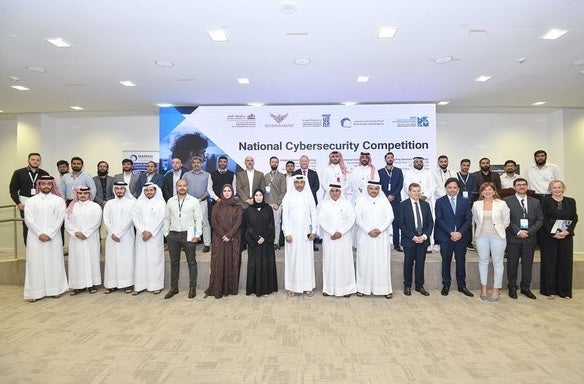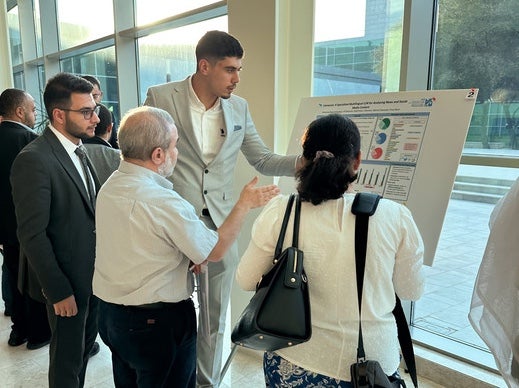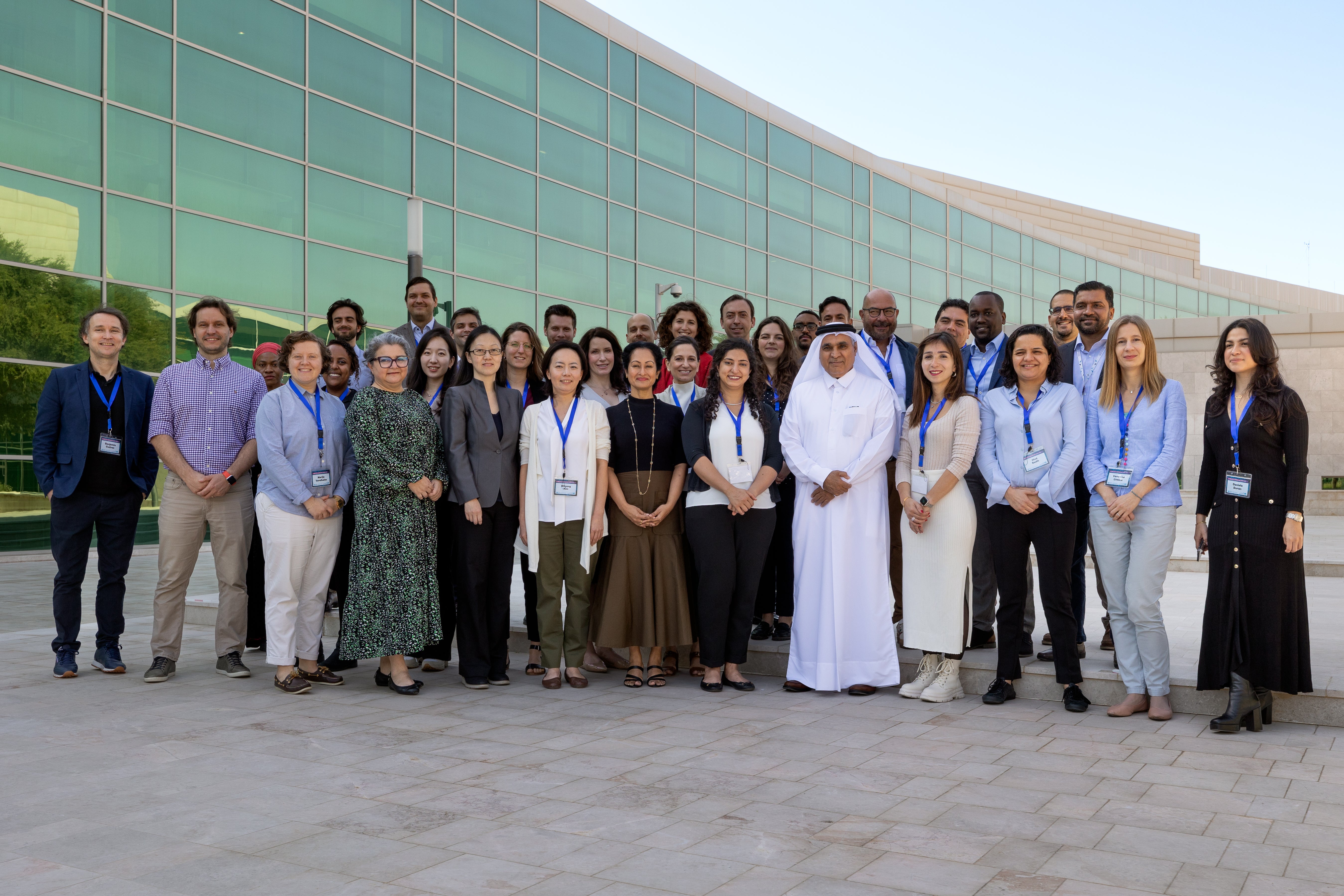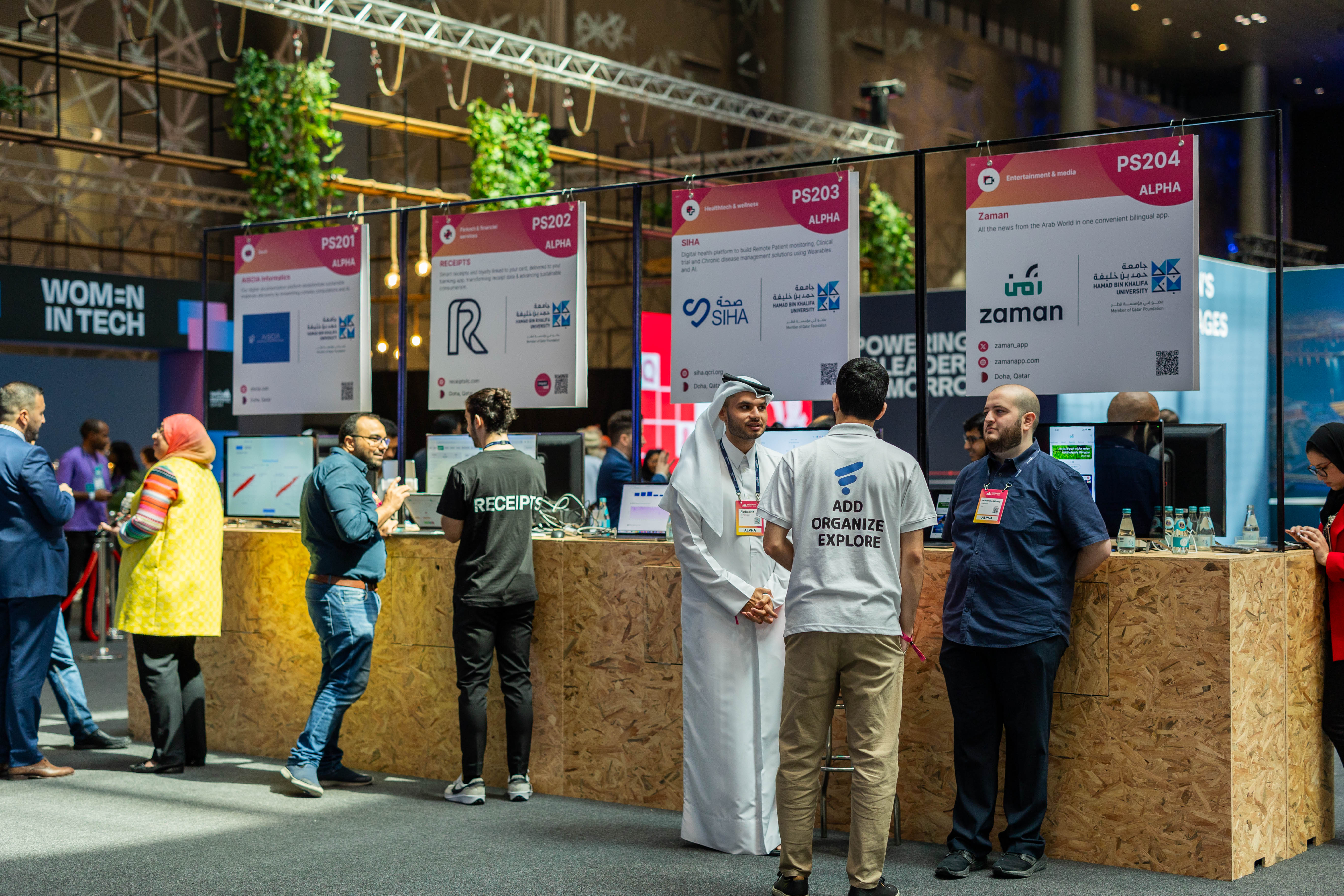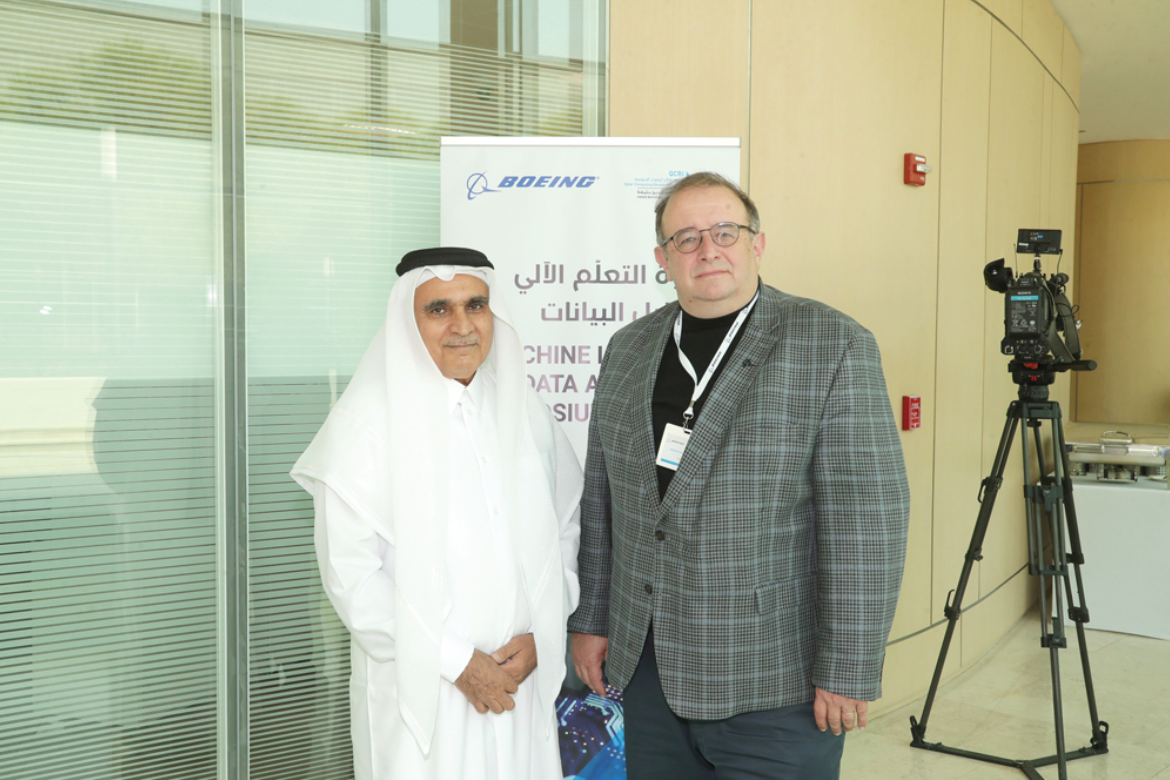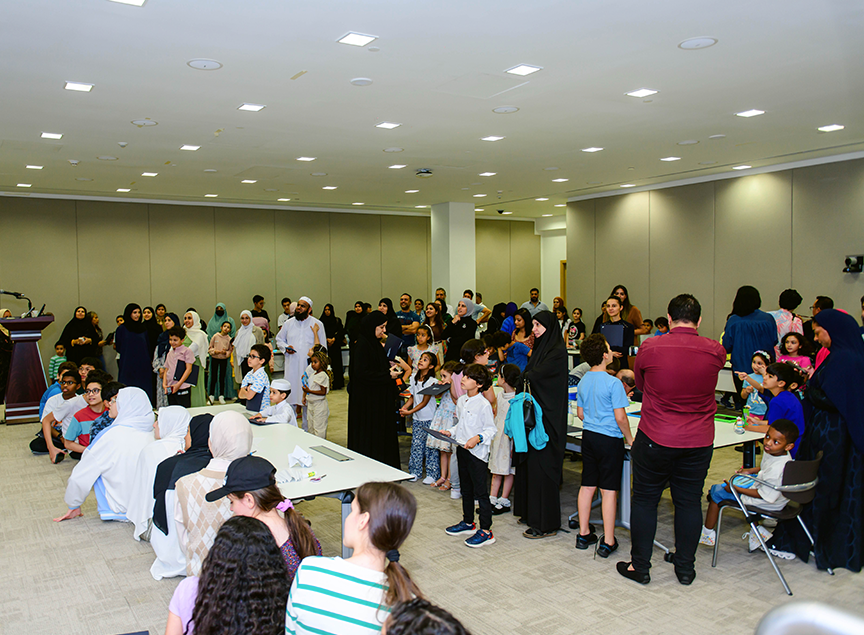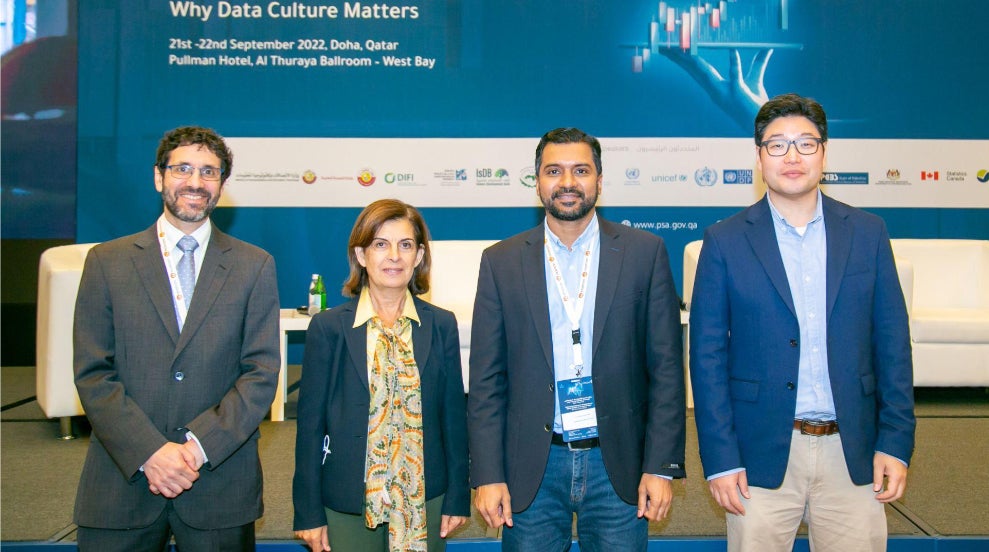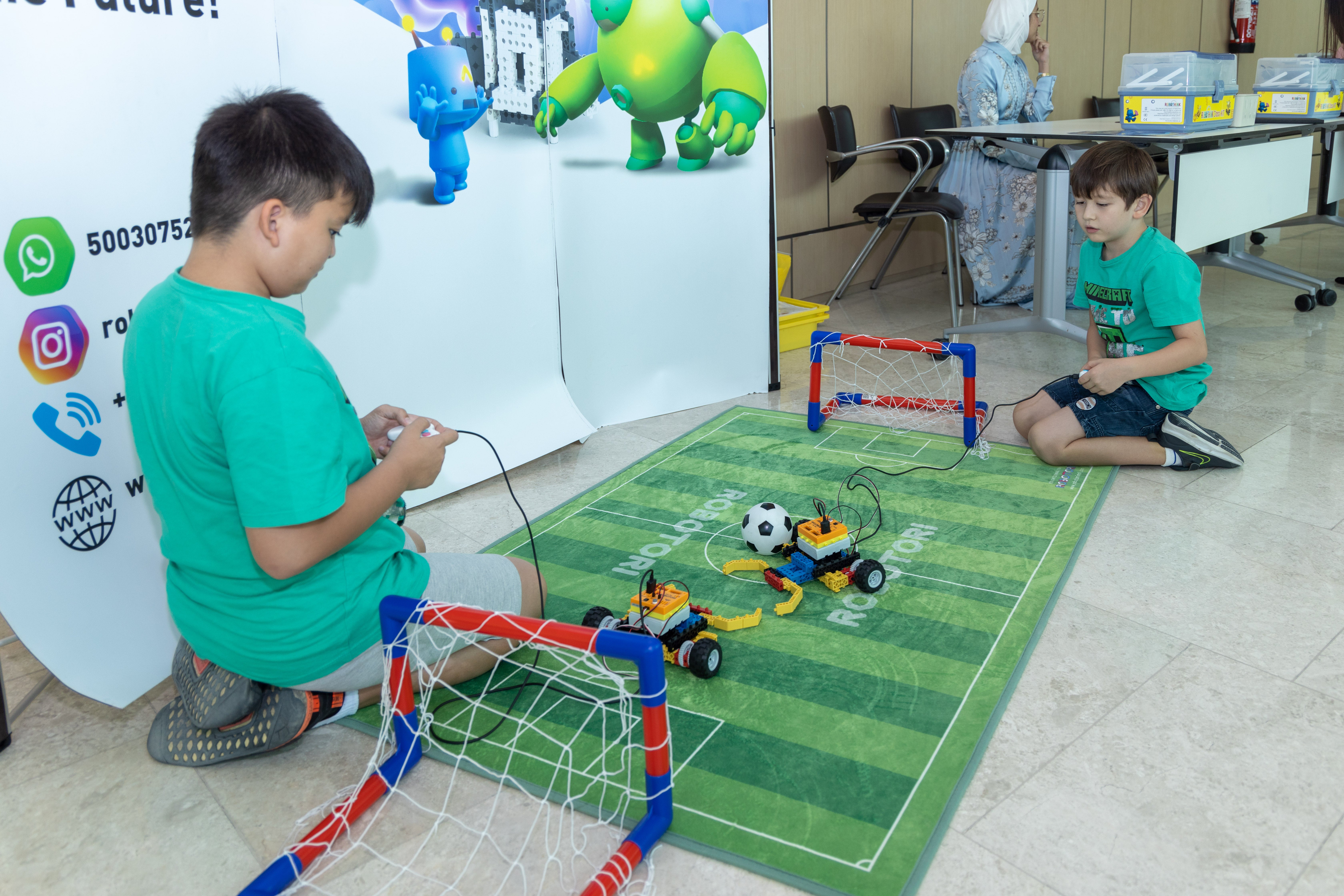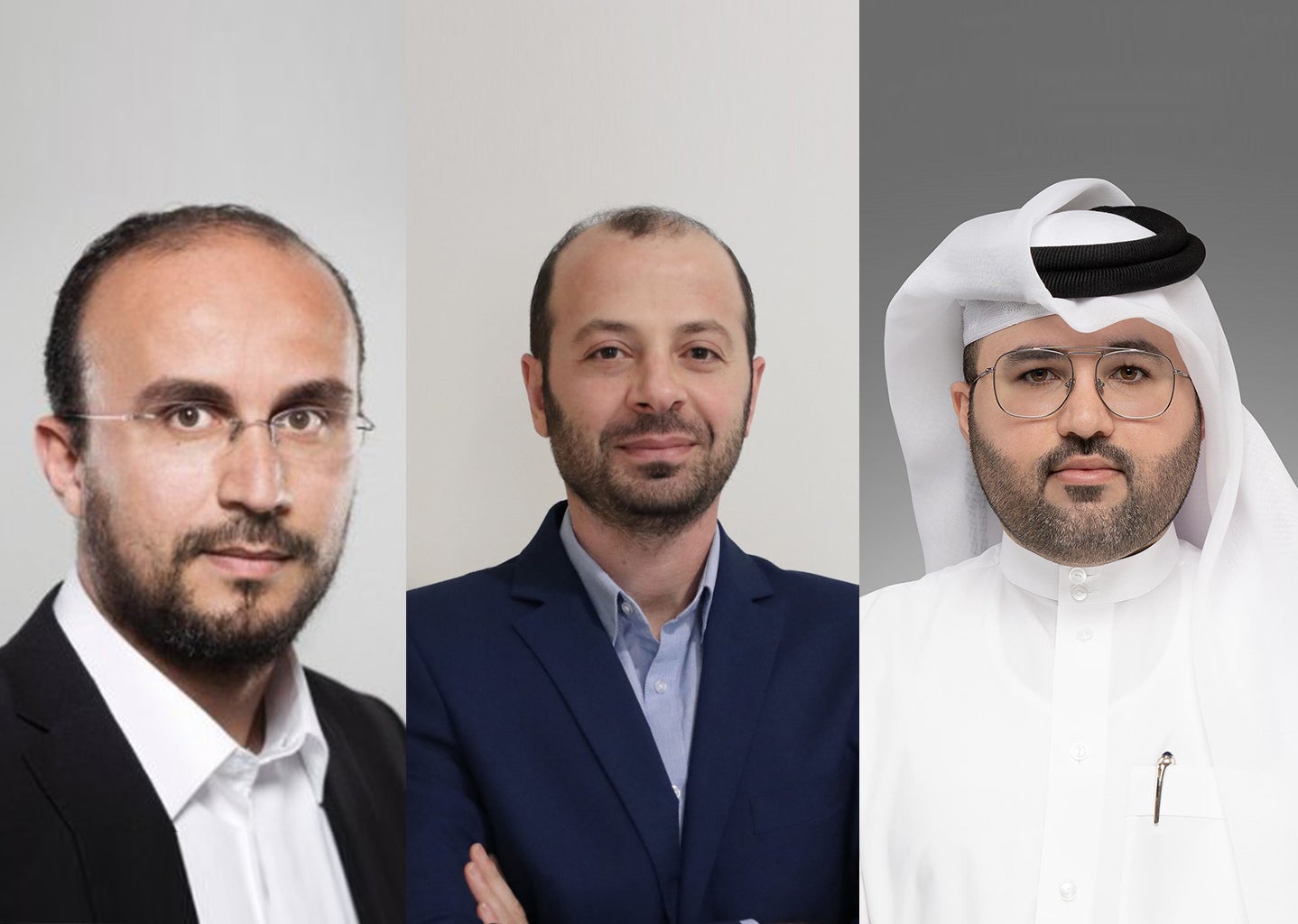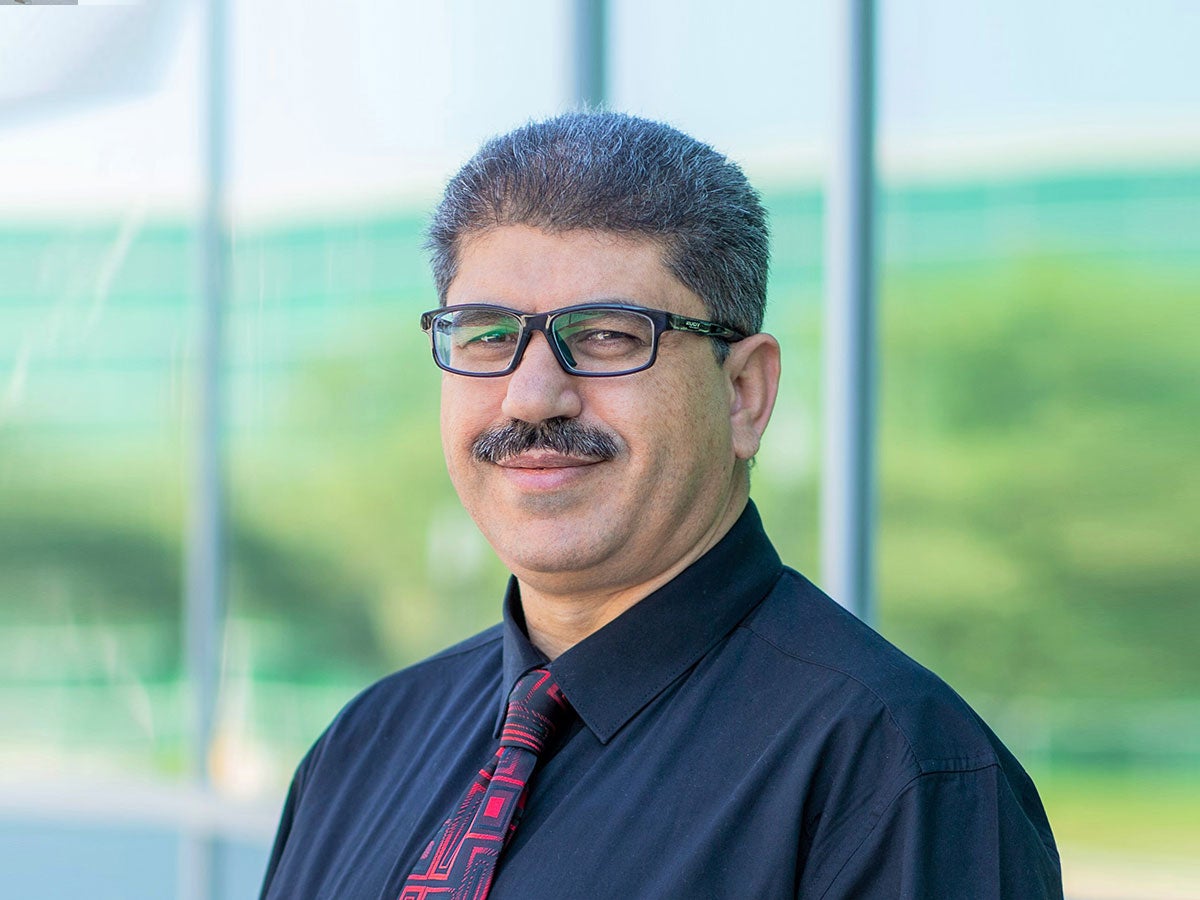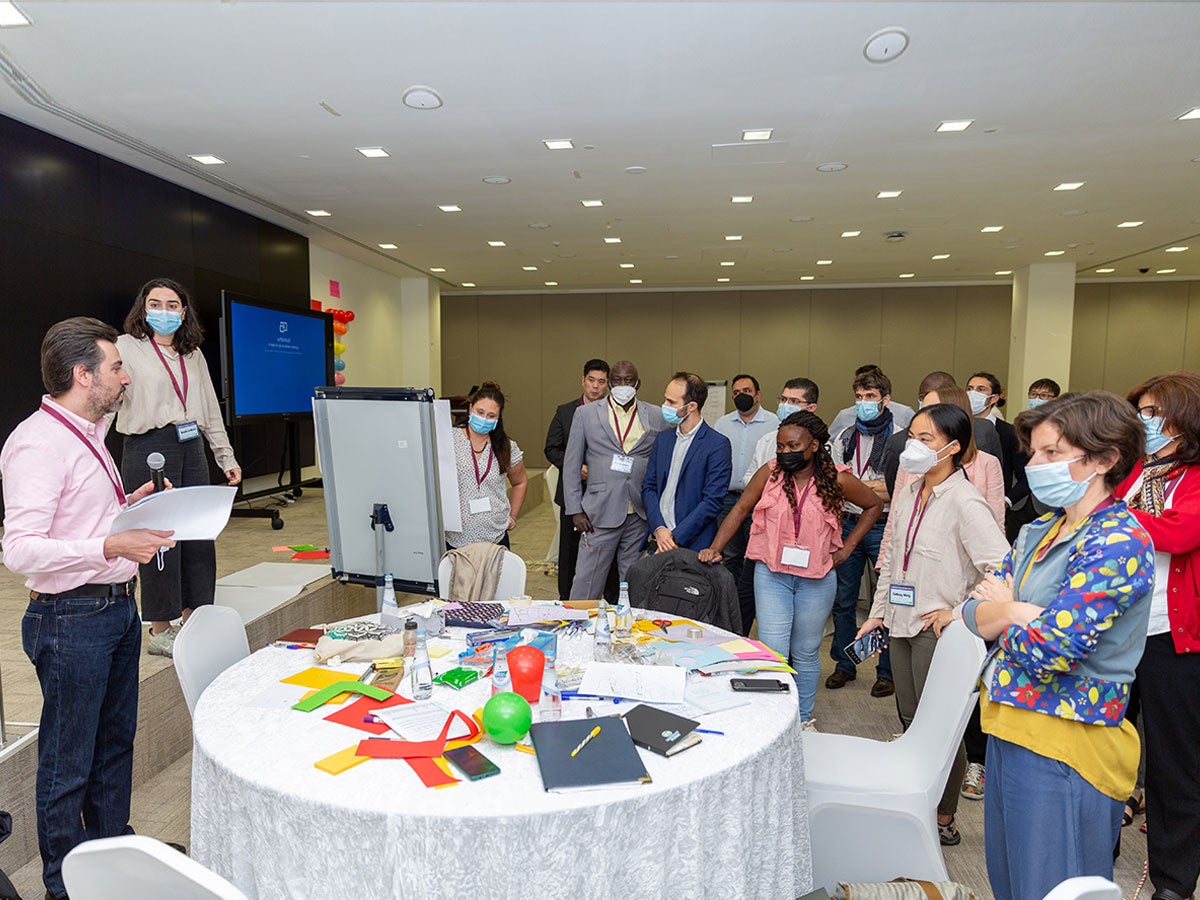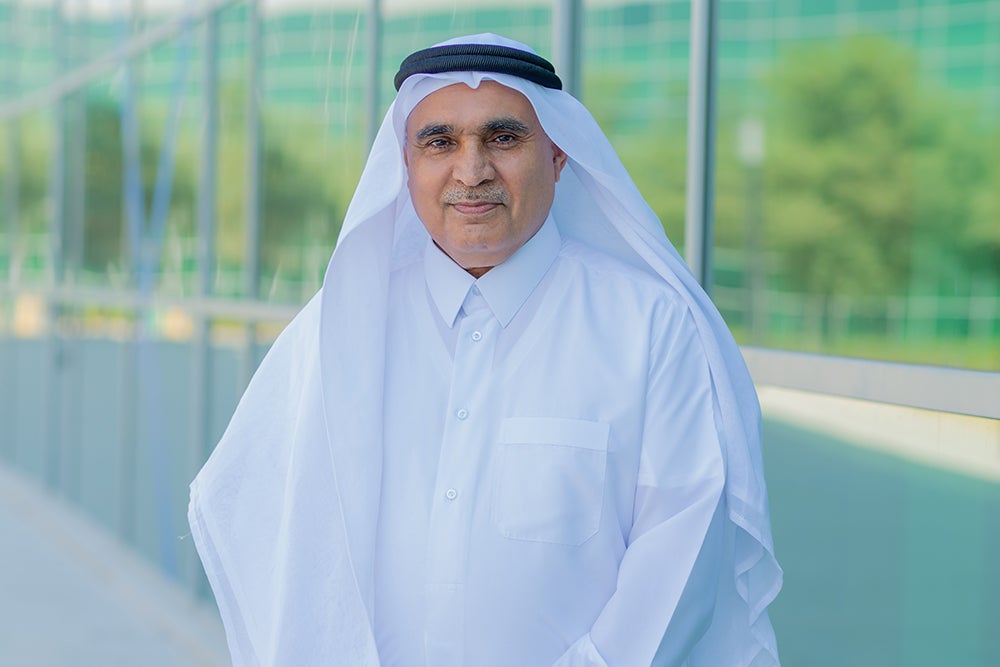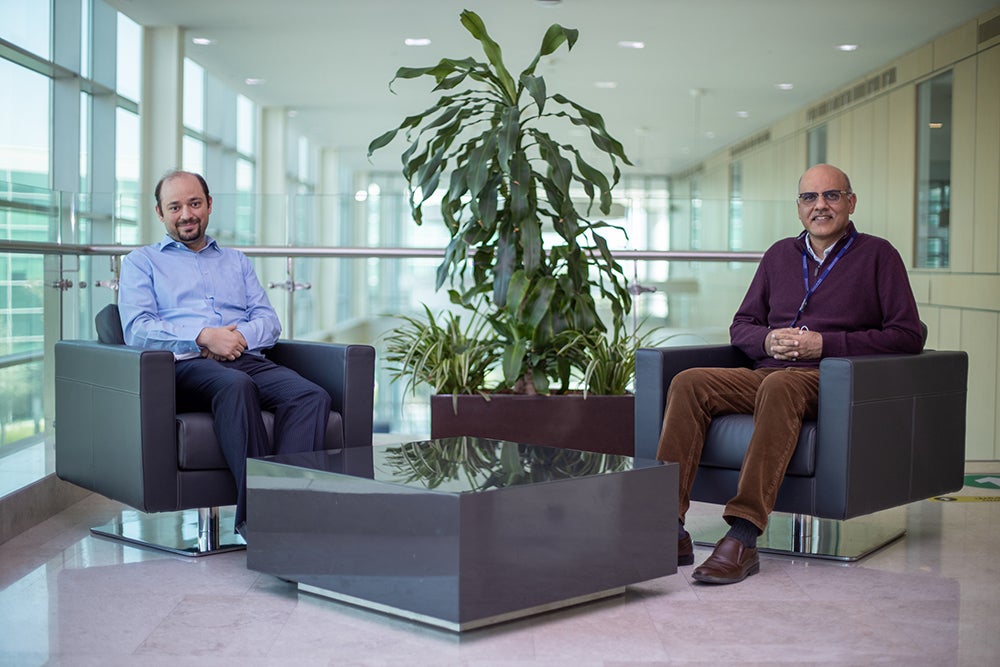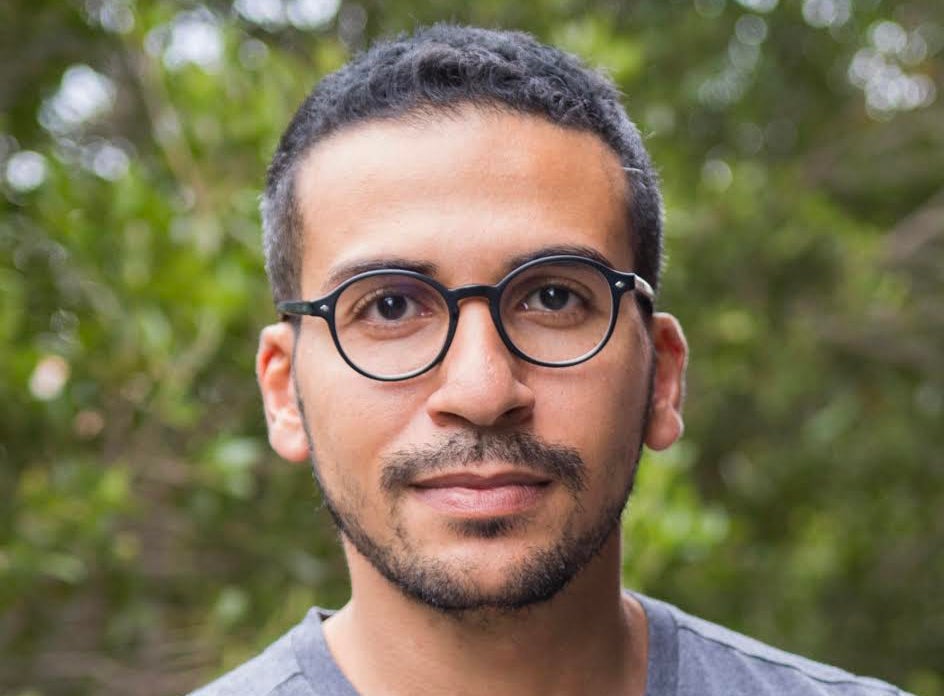
Interview with: Dr. Ahmed Elmagarmid Executive Director, Qatar Computing Research Institute (QCRI)

What are your most prominent research efforts currently?
Qatar Computing Research Institute (QCRI) makes significant contributions through its research centers that focus on vital areas including cybersecurity, social computing, Arabic language technologies, data analytics and software engineering.
The centers conduct artificial intelligence (AI)-centric research, analytical studies of social media platforms, and research on digital health.
QCRI supports decision makers, governmental entities, as well as the private and public sectors in Qatar by developing technologies that provide them with important and accurate data. We exert our best efforts and endeavors to achieve national goals.
Are you engaged in research related to combating the coronavirus (COVID-19)?
QCRI is currently conducting specialized research through three different platforms, all of which were developed by us. These platforms are:
Al-Rayyan Platform: This platform provides researchers and authors working in the health and research sectors with immense potential capacity by enabling them to read a myriad of research papers and academic journals publications in record time.
The platform collects all general research related to the new coronavirus (COVID-19) to help reduce the time required for conducting medical research. The platform also enables a general review of metadata related to the virus.
Self-Assessment Platform: This platform was customized to facilitate the self-assessment process for local community members through a user-friendly online application that helps in identifying and assessing the symptoms of COVID-19.
The application is available in 11 languages including Arabic, English, Hindi and Filipino, which are the main languages spoken by the biggest communities here in Qatar. It has been used by more than 500 thousand users, the majority of them are Arabs followed by Indians.
Fake News Detection Platforms: QCRI relies on modern techniques to identify and combat fake news related to COVID-19 through the Tanbih News Aggregator, which was specially designed to serve as a unique tool at various fronts. This aggregator turns technology into an actual product that can be easily operated by users. It has been created to focus on a specific region. Therefore, it pays great attention to what is needed in this part of the world and suggests ways to meet these needs.
The platform works in conjunction with the Saqr technology developed by QCRI with the objective of analyzing content and data related to social media, especially Twitter. In addition to tracking the different patterns on social media related to COVID-19, the platform enables the researchers to prepare relevant reports and outputs for governmental agencies. Through these platforms, the detection of fake news becomes possible using mass communication and social media.
How can these efforts support local measures in this direction?
These platforms are all designed to provide partial and total solutions at three different levels: the international community, governmental agencies, national institutions, and individuals.
For example, the Al-Rayyan platform is available to users all across the world, while the self-assessment platform provides support to individuals in the region. For their parts, the “Tanbih” and “Saqr” platforms communicate important data to the relevant authorities in the country. We are also working with the National Command Center (NCC) on using artificial intelligence techniques to help reduce the spread of the virus through physical contact.
What is the most important advice and instructions you provide to community members now?
We urge community members to follow the policies and instructions communicated by the government. It is very important to be aware of the ramifications of COVID-19, abide by the law, and take care of team spirit, as we all need moral support. Finally, we urge everyone to resort to the official channels to verify the accuracy of any piece of news before propagating it.
I would also like to express my admiration for the comprehensive and strategic response of the governmental and private agencies, which are ensuring the continuous provision of supplies, health care, education and security. This effective and prompt response has really contributed to controlling the speed of the coronavirus outbreak. This would have never happened without the great planning and awareness showed by all stakeholders. We should all be proud of such a successful response and the good governance that is contributing to controlling the situation and ensuring the smooth continuity of life.
Tell us more about the diagnostic application developed by QCRI to combat COVID-19
It is an application specifically designed to provide easy, safe, and effective support to community members. It provides help for people showing symptoms of COVID-19 and explains the next potential steps that can be taken.
One of the most important features of this application is that it is multilingual. It also pays special attention to languages that are commonly used by the community members.
What aspects of cooperation and partnerships are you focused on in terms of research efforts related to coronavirus?
We are working closely with the Ministry of Public Health and Hamad Medical Corporation, as part of the national concerted efforts exerted to combat COVID-19. On the other hand, we also work with the Ministry of Interior and the Ministry of Foreign Affairs on several projects by providing them with technical support and consultation. QCR is also collaborating with Sidra Medicine in the field of digital health.
On an international scale, we provide support to the United Nations Office for the Coordination of Humanitarian Affairs (OCHA), through the Humanitarian Data Exchange Program. We have shared the information gathered from tweets about COVID-19 with them, along with a special perception about this data.
How do you deploy your experience to devise or develop ways to combat this pandemic?
We pay special attention to applied and interdisciplinary research. Our scientists are ready to work in research groups to address major challenges on an international scale. We are accustomed to working under complicated conditions while focusing on providing effective applicable solutions. QCRI has a big group of artificial intelligence experts who can invest their computational expertise in supporting research teams that conduct medical research related to coronavirus (COVID-19).
Related News
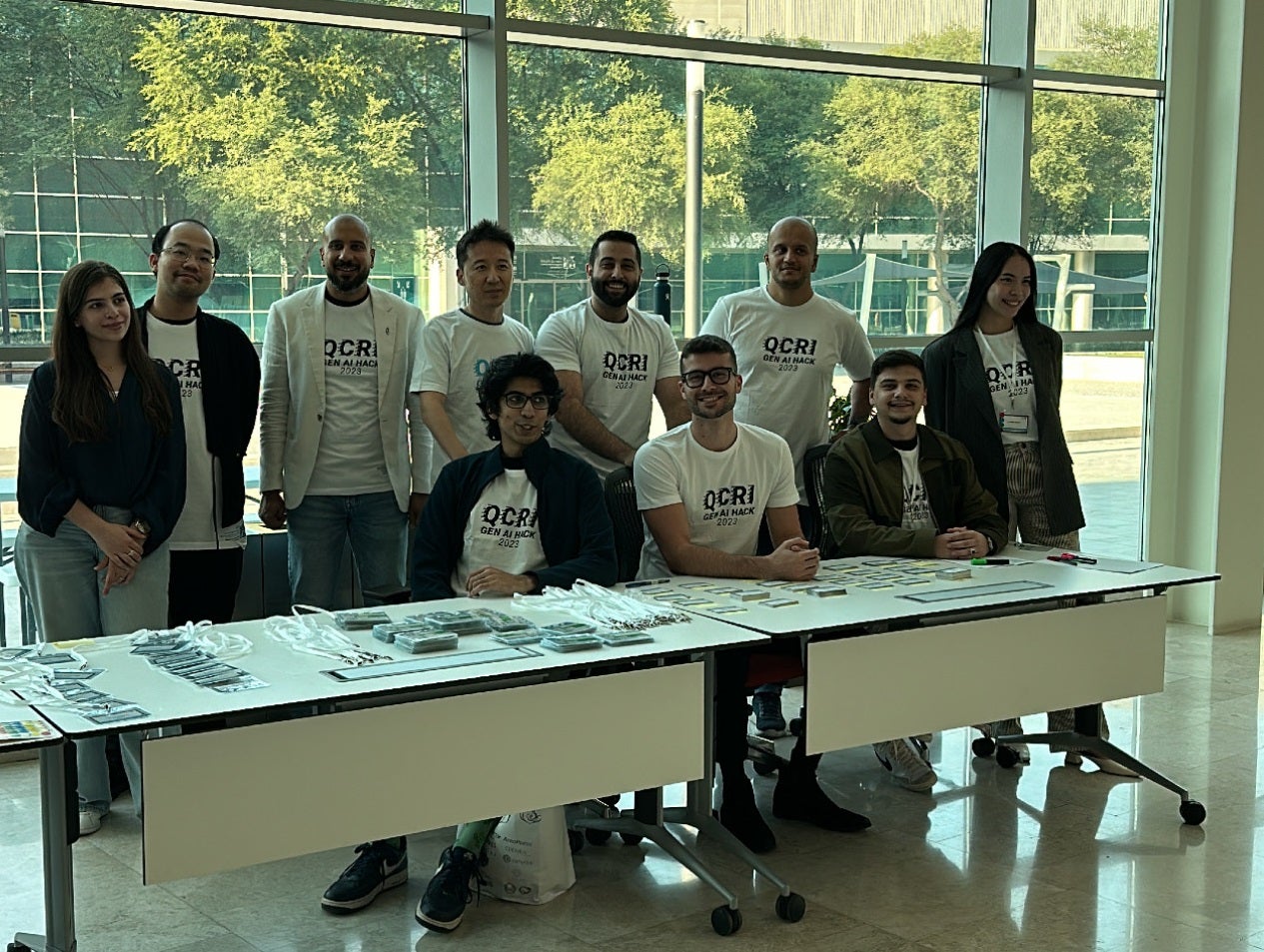
QCRI Generative AI Hackathon Delivers a Showcase of Innovation and Collaboration
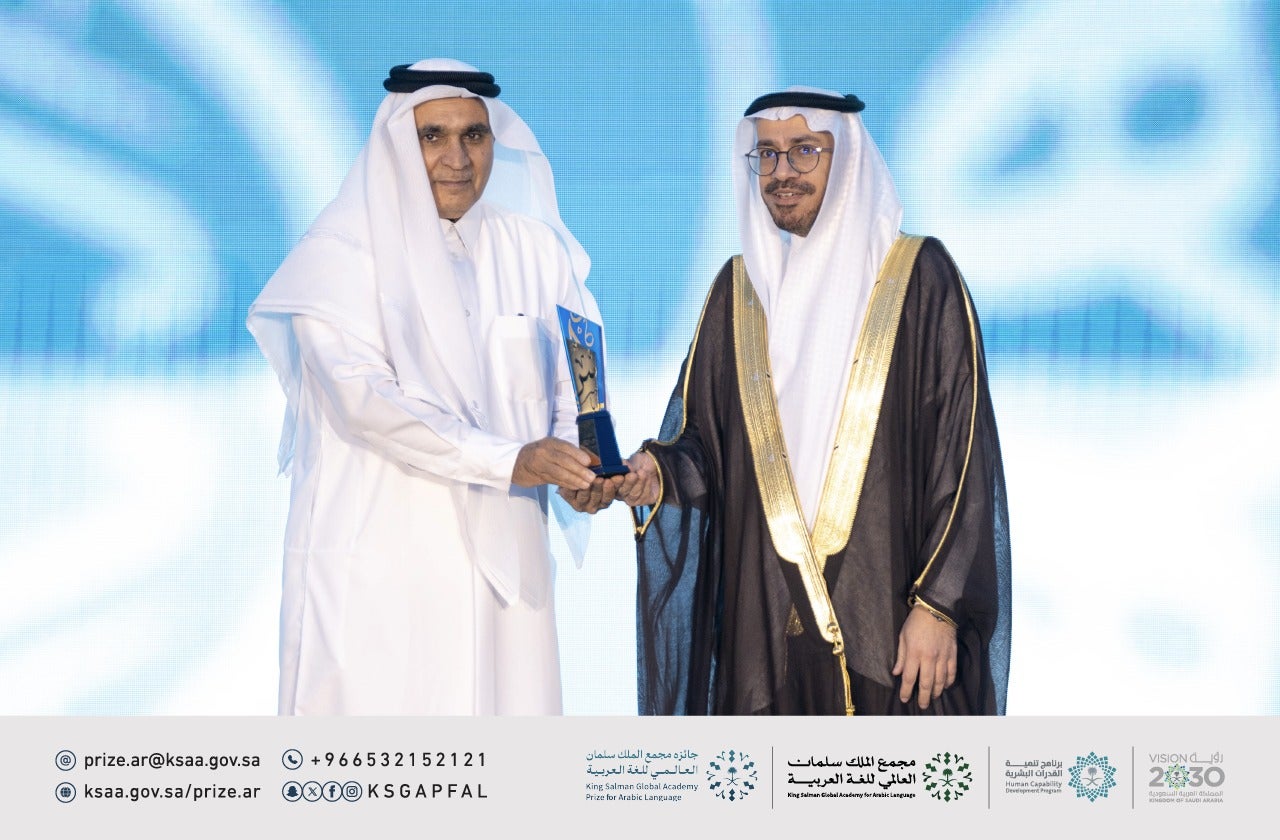
HBKU’s QCRI Receives King Salman International Academy Award for the Arabic Language 2023
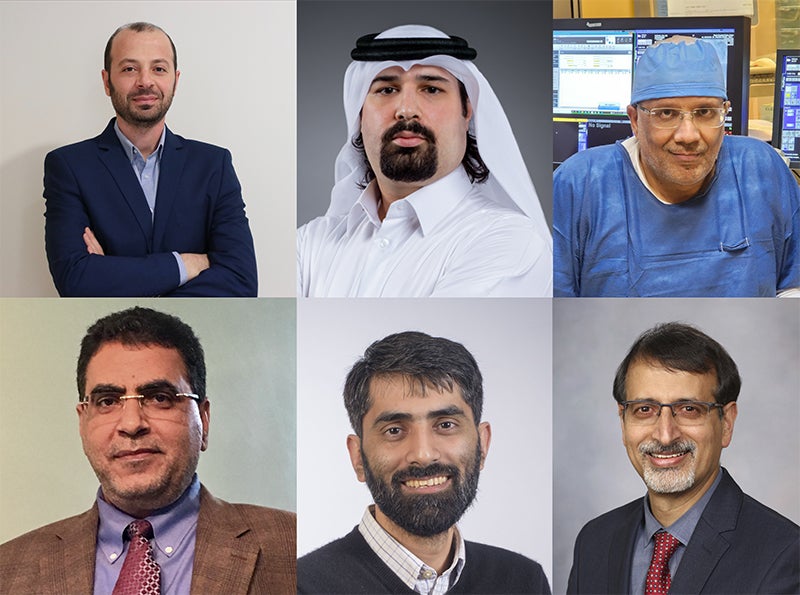
QCRI, HMC and the Mayo Clinic Shed Light on Genomics of Coronary Heart Disease

HBKU’s Qatar Computing Research Institute Concludes Summer Internship Program Online

Qatar Computing Research Institute Continues Webinar Series with Focus on COVID-19 Challenges
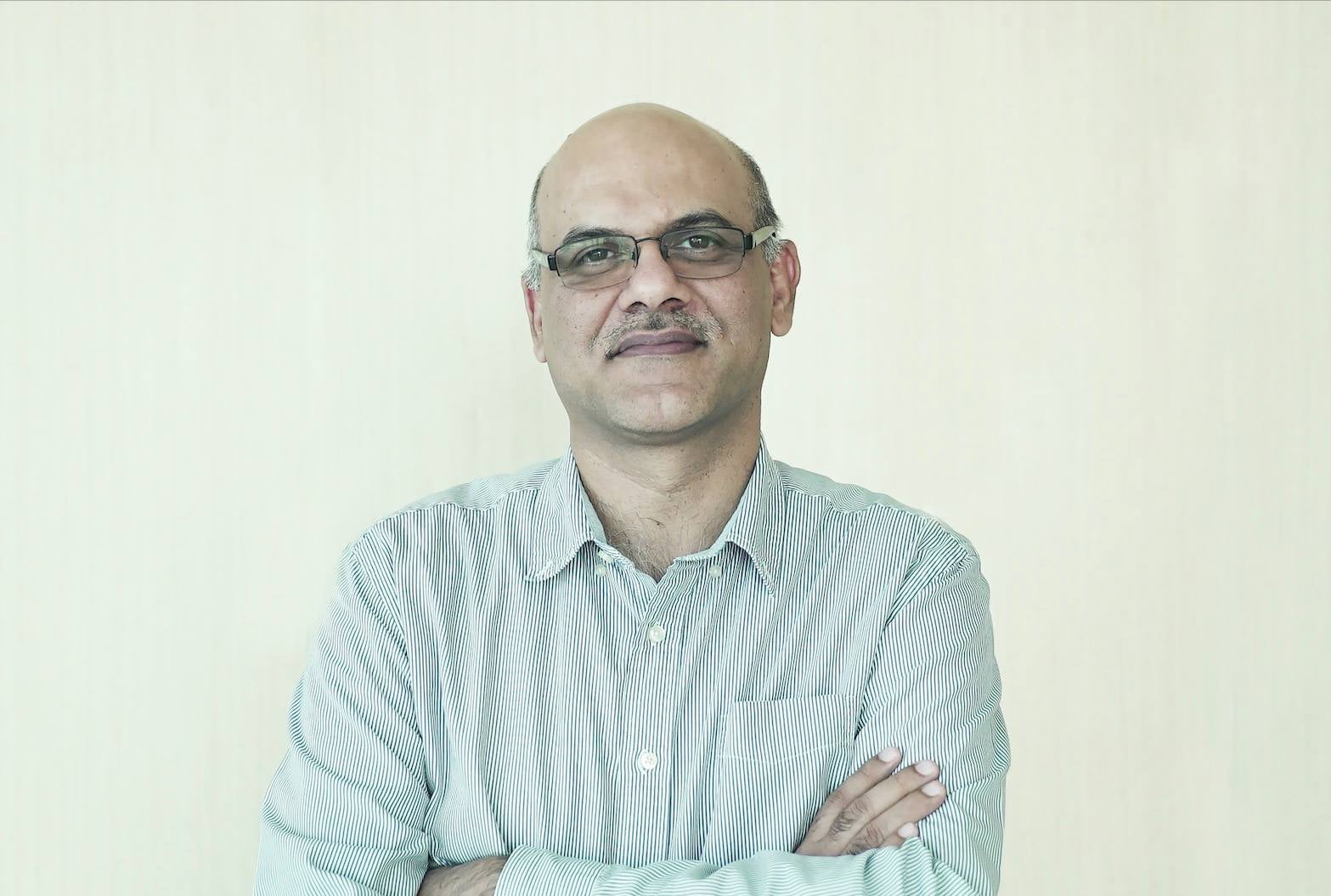
Qatar Computing Research Institute Webinars Examine Data Exploration and Meta-Data for COVID-19

QCRI Generative AI Hackathon Delivers a Showcase of Innovation and Collaboration

HBKU’s QCRI Receives King Salman International Academy Award for the Arabic Language 2023

QCRI, HMC and the Mayo Clinic Shed Light on Genomics of Coronary Heart Disease

HBKU’s Qatar Computing Research Institute Concludes Summer Internship Program Online

Qatar Computing Research Institute Continues Webinar Series with Focus on COVID-19 Challenges

Qatar Computing Research Institute Webinars Examine Data Exploration and Meta-Data for COVID-19

QCRI Generative AI Hackathon Delivers a Showcase of Innovation and Collaboration

HBKU’s QCRI Receives King Salman International Academy Award for the Arabic Language 2023

QCRI, HMC and the Mayo Clinic Shed Light on Genomics of Coronary Heart Disease

HBKU’s Qatar Computing Research Institute Concludes Summer Internship Program Online

Qatar Computing Research Institute Continues Webinar Series with Focus on COVID-19 Challenges

Qatar Computing Research Institute Webinars Examine Data Exploration and Meta-Data for COVID-19

QCRI Generative AI Hackathon Delivers a Showcase of Innovation and Collaboration

HBKU’s QCRI Receives King Salman International Academy Award for the Arabic Language 2023

QCRI, HMC and the Mayo Clinic Shed Light on Genomics of Coronary Heart Disease

HBKU’s Qatar Computing Research Institute Concludes Summer Internship Program Online

Qatar Computing Research Institute Continues Webinar Series with Focus on COVID-19 Challenges

Qatar Computing Research Institute Webinars Examine Data Exploration and Meta-Data for COVID-19

QCRI Generative AI Hackathon Delivers a Showcase of Innovation and Collaboration

HBKU’s QCRI Receives King Salman International Academy Award for the Arabic Language 2023

QCRI, HMC and the Mayo Clinic Shed Light on Genomics of Coronary Heart Disease

HBKU’s Qatar Computing Research Institute Concludes Summer Internship Program Online

Qatar Computing Research Institute Continues Webinar Series with Focus on COVID-19 Challenges

Qatar Computing Research Institute Webinars Examine Data Exploration and Meta-Data for COVID-19

QCRI Generative AI Hackathon Delivers a Showcase of Innovation and Collaboration

HBKU’s QCRI Receives King Salman International Academy Award for the Arabic Language 2023

QCRI, HMC and the Mayo Clinic Shed Light on Genomics of Coronary Heart Disease

HBKU’s Qatar Computing Research Institute Concludes Summer Internship Program Online

Qatar Computing Research Institute Continues Webinar Series with Focus on COVID-19 Challenges

Qatar Computing Research Institute Webinars Examine Data Exploration and Meta-Data for COVID-19

QCRI Generative AI Hackathon Delivers a Showcase of Innovation and Collaboration

HBKU’s QCRI Receives King Salman International Academy Award for the Arabic Language 2023

QCRI, HMC and the Mayo Clinic Shed Light on Genomics of Coronary Heart Disease

HBKU’s Qatar Computing Research Institute Concludes Summer Internship Program Online

Qatar Computing Research Institute Continues Webinar Series with Focus on COVID-19 Challenges

Qatar Computing Research Institute Webinars Examine Data Exploration and Meta-Data for COVID-19

QCRI Generative AI Hackathon Delivers a Showcase of Innovation and Collaboration

HBKU’s QCRI Receives King Salman International Academy Award for the Arabic Language 2023

QCRI, HMC and the Mayo Clinic Shed Light on Genomics of Coronary Heart Disease

HBKU’s Qatar Computing Research Institute Concludes Summer Internship Program Online

Qatar Computing Research Institute Continues Webinar Series with Focus on COVID-19 Challenges

Qatar Computing Research Institute Webinars Examine Data Exploration and Meta-Data for COVID-19

QCRI Generative AI Hackathon Delivers a Showcase of Innovation and Collaboration

HBKU’s QCRI Receives King Salman International Academy Award for the Arabic Language 2023

QCRI, HMC and the Mayo Clinic Shed Light on Genomics of Coronary Heart Disease

HBKU’s Qatar Computing Research Institute Concludes Summer Internship Program Online

Qatar Computing Research Institute Continues Webinar Series with Focus on COVID-19 Challenges

Qatar Computing Research Institute Webinars Examine Data Exploration and Meta-Data for COVID-19

QCRI Generative AI Hackathon Delivers a Showcase of Innovation and Collaboration

HBKU’s QCRI Receives King Salman International Academy Award for the Arabic Language 2023

QCRI, HMC and the Mayo Clinic Shed Light on Genomics of Coronary Heart Disease

HBKU’s Qatar Computing Research Institute Concludes Summer Internship Program Online

Qatar Computing Research Institute Continues Webinar Series with Focus on COVID-19 Challenges

Qatar Computing Research Institute Webinars Examine Data Exploration and Meta-Data for COVID-19

QCRI Generative AI Hackathon Delivers a Showcase of Innovation and Collaboration

HBKU’s QCRI Receives King Salman International Academy Award for the Arabic Language 2023

QCRI, HMC and the Mayo Clinic Shed Light on Genomics of Coronary Heart Disease

HBKU’s Qatar Computing Research Institute Concludes Summer Internship Program Online

Qatar Computing Research Institute Continues Webinar Series with Focus on COVID-19 Challenges

Qatar Computing Research Institute Webinars Examine Data Exploration and Meta-Data for COVID-19

QCRI Generative AI Hackathon Delivers a Showcase of Innovation and Collaboration

HBKU’s QCRI Receives King Salman International Academy Award for the Arabic Language 2023

QCRI, HMC and the Mayo Clinic Shed Light on Genomics of Coronary Heart Disease

HBKU’s Qatar Computing Research Institute Concludes Summer Internship Program Online

Qatar Computing Research Institute Continues Webinar Series with Focus on COVID-19 Challenges

Qatar Computing Research Institute Webinars Examine Data Exploration and Meta-Data for COVID-19

QCRI Generative AI Hackathon Delivers a Showcase of Innovation and Collaboration

HBKU’s QCRI Receives King Salman International Academy Award for the Arabic Language 2023

QCRI, HMC and the Mayo Clinic Shed Light on Genomics of Coronary Heart Disease

HBKU’s Qatar Computing Research Institute Concludes Summer Internship Program Online

Qatar Computing Research Institute Continues Webinar Series with Focus on COVID-19 Challenges

Qatar Computing Research Institute Webinars Examine Data Exploration and Meta-Data for COVID-19

QCRI Generative AI Hackathon Delivers a Showcase of Innovation and Collaboration

HBKU’s QCRI Receives King Salman International Academy Award for the Arabic Language 2023

QCRI, HMC and the Mayo Clinic Shed Light on Genomics of Coronary Heart Disease

HBKU’s Qatar Computing Research Institute Concludes Summer Internship Program Online

Qatar Computing Research Institute Continues Webinar Series with Focus on COVID-19 Challenges

Qatar Computing Research Institute Webinars Examine Data Exploration and Meta-Data for COVID-19

QCRI Generative AI Hackathon Delivers a Showcase of Innovation and Collaboration

HBKU’s QCRI Receives King Salman International Academy Award for the Arabic Language 2023

QCRI, HMC and the Mayo Clinic Shed Light on Genomics of Coronary Heart Disease

HBKU’s Qatar Computing Research Institute Concludes Summer Internship Program Online

Qatar Computing Research Institute Continues Webinar Series with Focus on COVID-19 Challenges

Qatar Computing Research Institute Webinars Examine Data Exploration and Meta-Data for COVID-19

QCRI Generative AI Hackathon Delivers a Showcase of Innovation and Collaboration

HBKU’s QCRI Receives King Salman International Academy Award for the Arabic Language 2023

QCRI, HMC and the Mayo Clinic Shed Light on Genomics of Coronary Heart Disease

HBKU’s Qatar Computing Research Institute Concludes Summer Internship Program Online

Qatar Computing Research Institute Continues Webinar Series with Focus on COVID-19 Challenges

Qatar Computing Research Institute Webinars Examine Data Exploration and Meta-Data for COVID-19

QCRI Generative AI Hackathon Delivers a Showcase of Innovation and Collaboration

HBKU’s QCRI Receives King Salman International Academy Award for the Arabic Language 2023

QCRI, HMC and the Mayo Clinic Shed Light on Genomics of Coronary Heart Disease

HBKU’s Qatar Computing Research Institute Concludes Summer Internship Program Online

Qatar Computing Research Institute Continues Webinar Series with Focus on COVID-19 Challenges

Qatar Computing Research Institute Webinars Examine Data Exploration and Meta-Data for COVID-19

QCRI Generative AI Hackathon Delivers a Showcase of Innovation and Collaboration

HBKU’s QCRI Receives King Salman International Academy Award for the Arabic Language 2023

QCRI, HMC and the Mayo Clinic Shed Light on Genomics of Coronary Heart Disease

HBKU’s Qatar Computing Research Institute Concludes Summer Internship Program Online

Qatar Computing Research Institute Continues Webinar Series with Focus on COVID-19 Challenges

Qatar Computing Research Institute Webinars Examine Data Exploration and Meta-Data for COVID-19

QCRI Generative AI Hackathon Delivers a Showcase of Innovation and Collaboration

HBKU’s QCRI Receives King Salman International Academy Award for the Arabic Language 2023

QCRI, HMC and the Mayo Clinic Shed Light on Genomics of Coronary Heart Disease

HBKU’s Qatar Computing Research Institute Concludes Summer Internship Program Online

Qatar Computing Research Institute Continues Webinar Series with Focus on COVID-19 Challenges

Qatar Computing Research Institute Webinars Examine Data Exploration and Meta-Data for COVID-19

QCRI Generative AI Hackathon Delivers a Showcase of Innovation and Collaboration

HBKU’s QCRI Receives King Salman International Academy Award for the Arabic Language 2023

QCRI, HMC and the Mayo Clinic Shed Light on Genomics of Coronary Heart Disease

HBKU’s Qatar Computing Research Institute Concludes Summer Internship Program Online

Qatar Computing Research Institute Continues Webinar Series with Focus on COVID-19 Challenges






